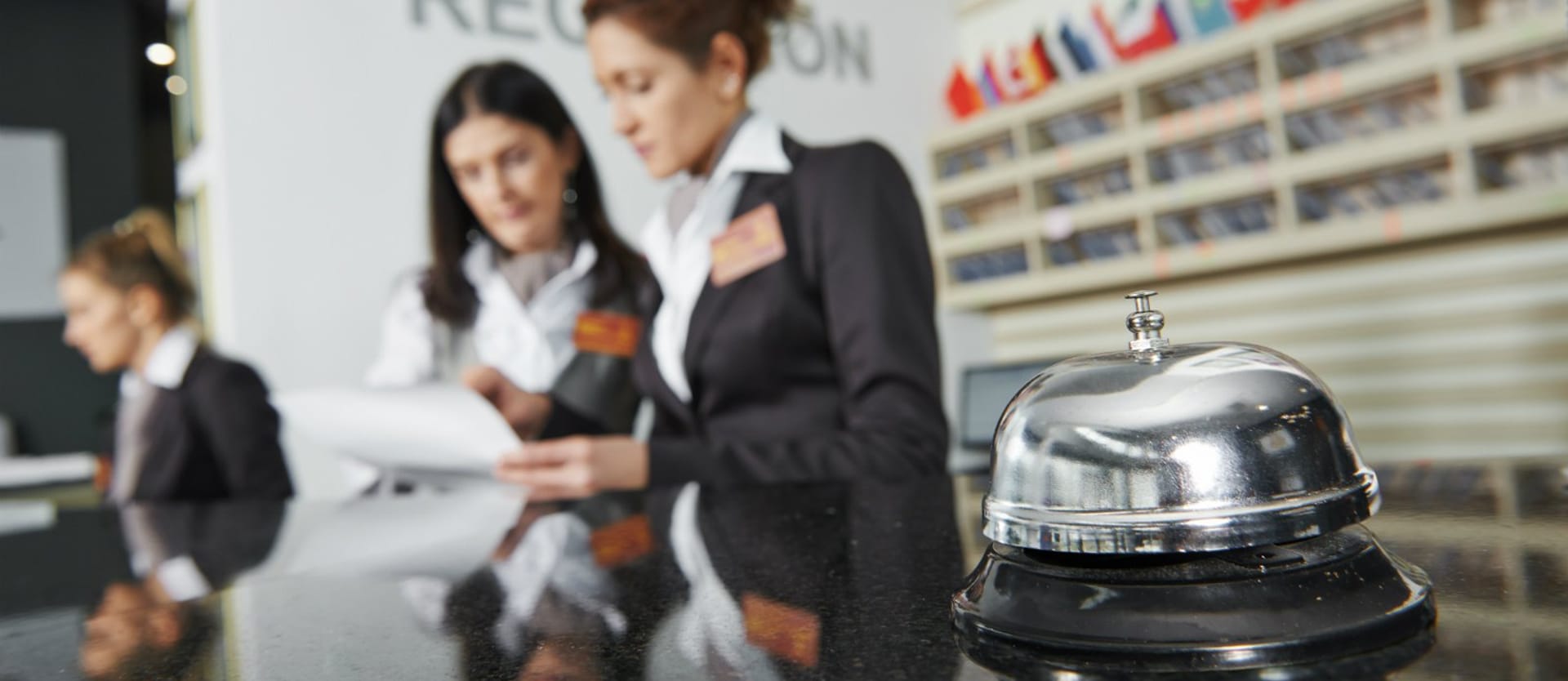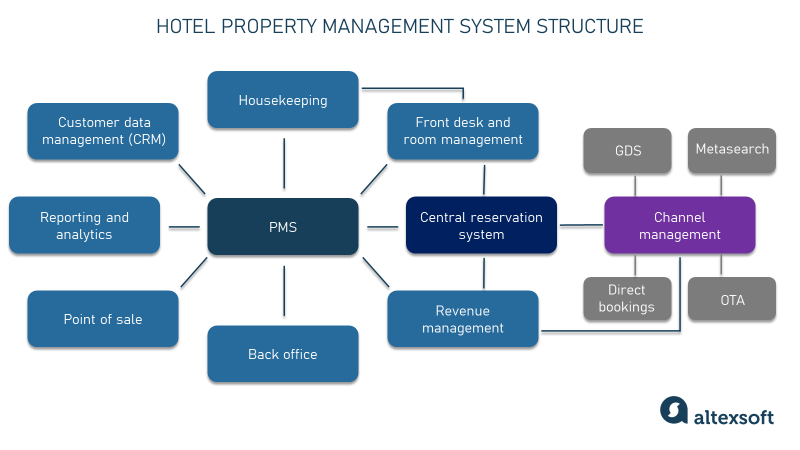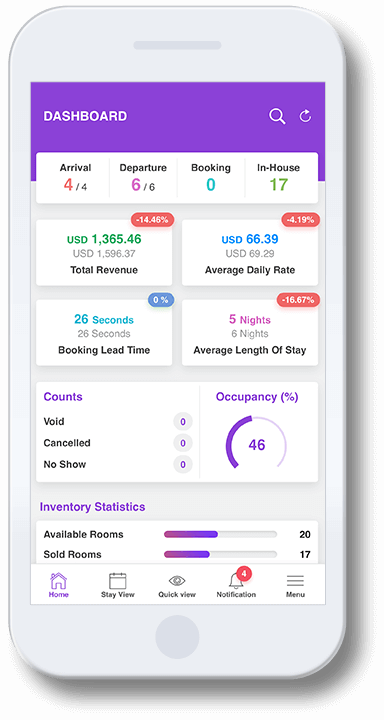In this article, we’ll talk about property management systems (PMSs) that handle reservations, front- and back-office operations, channel management, and more. You’ll learn about the main functions of PMSs, compare products available from different providers, and receive recommendations on how to choose the most suitable system for your hospitality business.
What is a property management system?
A property management system (PMS) is software that facilitates a hotel’s reservation management and administrative tasks. The most important functions are front-desk operations, reservations, channel management, housekeeping, rate and occupancy management, and payment processing. More advanced tools include CRM, HR management, reputation management, and so on.
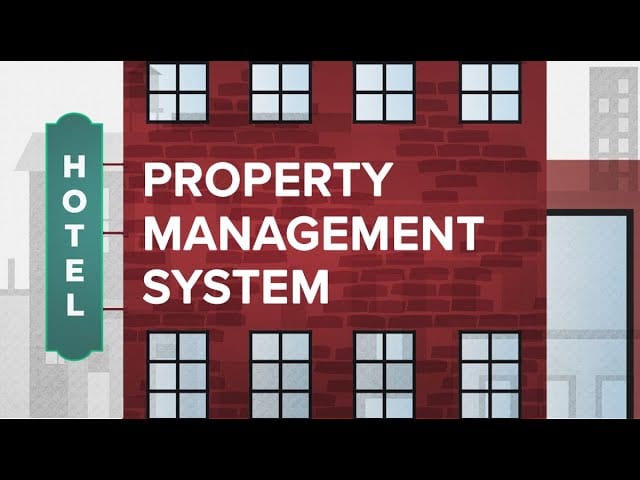

Hotel PMS overview
According to HotelTechReport, 81 percent of hoteliers believe that technology plays a huge role in property success. However, Adam Harris, CEO of Cloudbeds, mentioned the low tech adoption rate in his interview with Skift, “The average percentage of spend for technology in the hotel industry is like a fraction of what it should be.”
Still, hotels are gradually digitizing. The 2024 Lodging Technology Study shows that hotels allocate more and more money to maintaining and implementing software: 4.2 percent of overall revenue in 2023, up from 4 percent in 2022 and 3 percent the year before. And all respondents planned to either increase their IT budgets in 2024 or hold them steady.
The focus and speed of digital transformation largely depends on the size of the business. While smaller properties begin cautiously by automating the reservation process and streamlining payments, big hotel chains boldly embrace AI technologies and IoT, fine-tuning both guest-facing and internal operations.
Still, the property management system is the backbone of the hotel technology infrastructure, so 86 percent of hoteliers report that the PMS is their biggest aid, followed by their revenue management system and channel manager. So let’s see what all this software is about and how it supports hospitality businesses.
Main modules of property management systems
A modern property management system combines multiple work environments in a single piece of software. Depending on the provider, the combination of modules and their functions can vary. Additionally, some vendors sell their systems as separate components that can be integrated with an existing solution used by a hotel. Here is the basic structure of a hotel PMS.
A general structure of property management system
In this post, we’ll only provide brief descriptions of the PMS modules, but you’re welcome to visit our dedicated overviews to learn more about each one.
Reservation
A central reservation system (CRS) that helps manage online and offline bookings is an essential PMS component. It may be available as one of the PMS modules or implemented as a hotel’s separate internal solution.
A hotel reservation system holds all inventory data and dates, sending this information to the front desk. The reservation system must be integrated with the website booking engine and other distribution channels. Chain hotels usually have one central reservation system for all properties, while independent hotels have their own reservation systems. If a hotel or a hotel chain already uses a particular reservation software, the PMS must offer integration with the existing service.
Key functions of the reservation module include:
Room bookings. The system contains information about room availability and status that can be distributed across different channels. Once a new reservation comes in, the system updates the room availability, helping avoid double bookings. It also displays current and upcoming reservations on the calendar for convenient occupancy monitoring. Many CRSs also enable group reservations and activity bookings.
E-payments processing. A CRS often comes with an integrated payment gateway that processes online transactions.
Confirmation emails. The system sends confirmations to guests after they complete their booking. In some PMSs, this function is a part of the front-desk operations module.
Cancelation and refund management. If a reservation is canceled, a CRS updates the room availability and initiates the refund process.
A CRS can also have other features, such as reporting, CRM, or rate management, which might be a part of different PMS modules.
Visit a CRS explainer for more details.
Channel management
Channel management software provides a single interface for controlling and distributing inventories across different distribution channels such as GDSs, OTAs, wholesalers, direct booking platforms, etc.
A channel manager connects directly to a central reservation system, extracts room availability and rate data, and automatically updates this information across channels. This way, it keeps room details synchronized on all platforms and prevents overbooking or doublebooking.
Channel managers also support various revenue management activities. For example, hoteliers can block specific channels for specific dates, set booking limits for different channels, etc.
Direct distribution via booking engine
An important channel of distribution is a hotel's own website with a booking engine. An online booking engine allows travelers to complete reservations directly via a hotel website bypassing travel agents and OTAs.
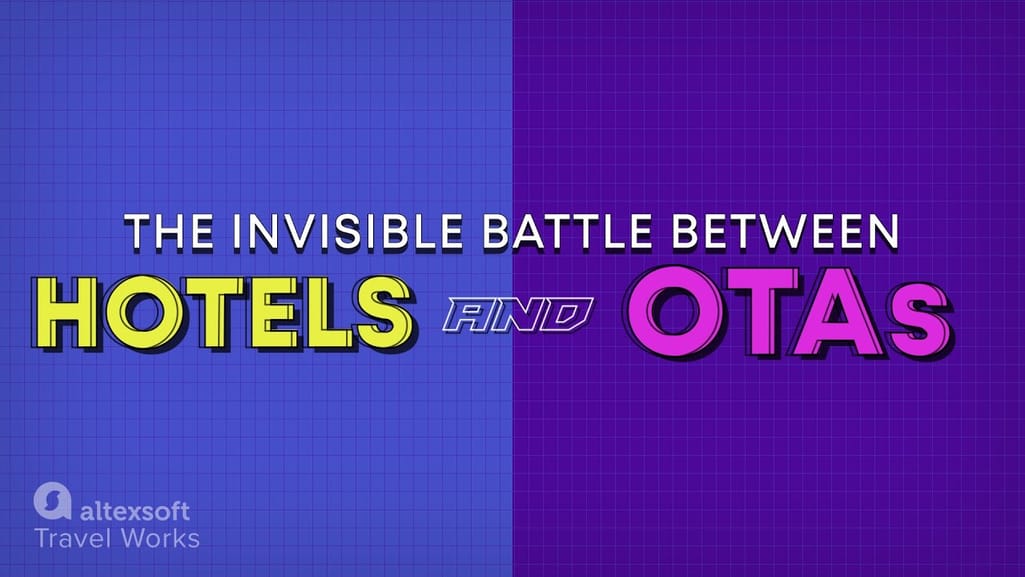

Here’s why direct bookings are crucial for hotels
A booking engine must be synchronized with the hotel CRS to share the current room information. It must also be integrated with the channel manager so that whenever booking occurs, availability is instantly updated across all distribution channels. Usually, this module also processes payments via integrated payment gateways.
In addition, booking engines often support upselling (selling room upgrades or complementing services) and packaging.
We have booking engines covered here.
Front-desk operations and room management
A front-office module allows a front-desk manager to view and update room reservation status, check guests in and out, and process payments. Some property management systems also offer integration with self-service check-in kiosks or allow checking in or out via a QR code.
So here’s what a front desk module will allow you to do.
Room status management. You can access and update room status and up-to-date information about all reservations, both current and upcoming. The front-desk module allocates rooms automatically and facilitates room changes.
Keys management. You can issue electronic key cards and deactivate them on check-out.
Payment processing. Front desk staff can charge guests for their bookings and other purchases and issue receipts.
Daily audits. The front-office module also enables night and shift audits. It’s an important process that ensures transaction accuracy and supports reporting.
In-room controls. As hotels become smarter and more tech-driven, room management gains more importance since this module also helps operate the in-room automated systems (e.g., lights, HVAC, etc.) remotely to prepare the room for guests' arrival.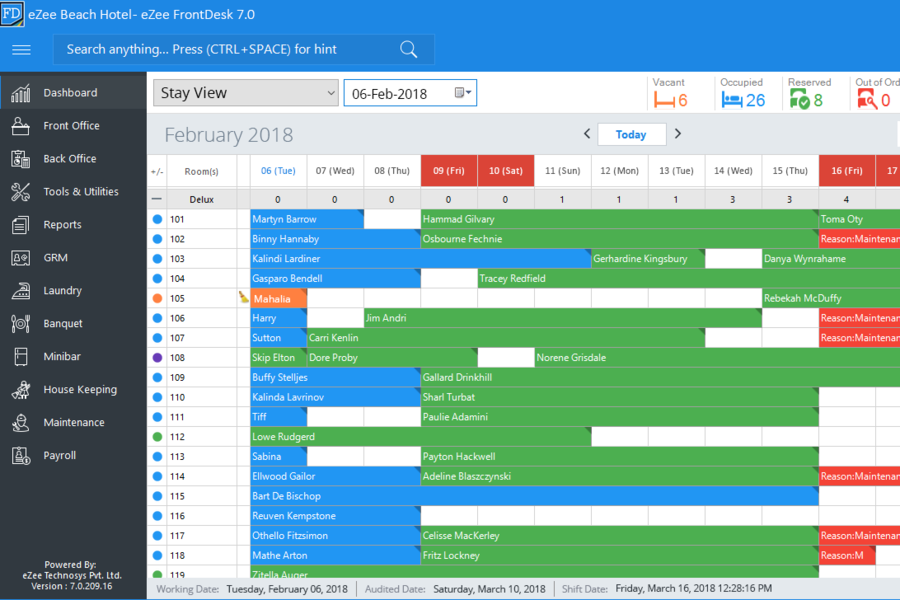
Front-desk operations interface. Source: Crozdesk
Optional features of the front desk module are guest profile management, reporting, housekeeping management, etc.
Check out a separate post about front-desk software.
Revenue management
Revenue management systems help hoteliers understand how to adjust rates and availability in all channels to achieve better financial results.
As studies prove, the majority of hoteliers realize the importance of revenue management. A 2022 research by tech provider Duetto showed that 67.6 percent of respondents currently use a revenue management system and 77.6 percent expect their hotel tech investments to increase in the next three years.
So RM software helps monitor and forecast such hotel KPIs as occupancy rate, RevPAR (revenue per available room), and ALOS (average length of stay), and dynamically adjust prices to maximize overall revenue. To make these adjustments most accurate, various types of data are also factored in, such as seasonality, weather, local events, public holidays, and so on.
Housekeeping
A PMS housekeeping module connects housekeeping staff to the front office to plan and monitor tasks related to servicing rooms and other areas of a hotel. Its main functionality includes room status tracking, staff assignment for room cleaning based on a block or floor location, workload management, and keeping lists of tasks for housekeepers. The module also keeps a record of hotel disruptions and repair activities with the further assignment of an attendant who can eliminate a problem.
For example, upon guest checkout, the front desk staff updates room status and adds room cleaning to the task list. The system assigns the job to the available housekeeper, who can then update the task status upon completion.
Read our dedicated article to learn more about housekeeping management software.
CRM and customer data management
The CRM module must integrate with the front desk and reservation system, collecting all guest information from these sources. It stores guest data and provides a database in an accessible format. Again, if a hotel already has its own CRM system, the PMS should integrate with it.
This module can also facilitate and personalize marketing activities such as promotions, measure guest experience, and automate pre- and post-stay services. Often, the CRM includes reputation management capabilities that help monitor guest reviews on social media and other online platforms.
By keeping complete guest profiles and preference data, the CRM helps owners personalize guest experience and enhance their stay.
Please read more about how CRM software benefits hoteliers in a dedicated post.
Reports and analytics
To monitor current processes and understand business performance, all business owners rely on analytics. A PMS can serve as a business intelligence tool, collecting relevant hotel data and providing hoteliers with various types of automated reports. Depending on the software, it can generate night audit reports, room and tax reports, shift audit reports, departure/arrival reports, housekeeping reports, or other ongoing summaries.
As for the analytics functionality, monitoring the main hotel KPIs is essential for gaining a full picture of the property's performance and making data-based decisions.
Back-office management
This PMS module facilitates the management of a hotel team, back-office activities, and administrative hotel operations, such as
- event management and catering,
- spa and gym management,
- staff management (shift management, staff invoicing, etc.),
- accounting/finance functionality,
- consumption costs and hotel spending analysis,
- inventory analysis, and
- sales and management of promotional campaigns.
So the back-office module supports internal operations, helps organize staff, and often includes accounting and other financial-related functionality.
Point-of-sale services
Most hotels have some kind of in-house restaurant, not to mention properties with gyms and spas. So, if there are multiple payment terminals in a hotel, the point-of-sale (POS) system is indispensable to collect and accurately handle transactions from different sources. With a POS module in their PMS, hoteliers can include additional charges or discounts to the final bill for each customer. Some examples of such charges are
- spa, gyms, and other activities;
- food and beverage services (restaurants, cafes, breakfasts); and
- in-room services, mini-bar items, TV, or Wi-Fi.
In addition to automated payment processing, a comprehensive POS module can support inventory management, collect information about customer purchasing patterns, generate sales activity reports, and keep financial data in one place.
Check out the complete POS software overview here.
Open APIs
Application Programming Interfaces (APIs) are pieces of programming code that connect different software systems and enable data exchange. Open APIs are publicly available for other developers and systems to integrate with.
Open APIs are crucial for modern PMS software. Given the many diverse solutions hotels use, there must be a way to integrate these tech tools into one ecosystem. Contactless check-in, guest experience apps, and smart locks are only a few examples of systems that can be integrated via an API.
Efficient data exchange reduces the need for manual data entry, decreasing errors and freeing up staff time. It also enables more comprehensive data collection for analysis.
How to choose PMS software
As we touched on earlier, the choice of a PMS depends on the size and type of a hotel property, as different systems have their own sets of core features and additional modules. Most players in the market offer hotel management systems that can be customized for different types of property and basic PMS components can be complemented with modules, required for a specific type of business.
Many properties already have reservation platforms or CRSs of their own, or utilize other business management software, so it is very important for the selected PMS to be integrable with third-party products. The final choice of a property management system for a hotel is largely shaped by the functionality required.
The 2023 Smart Decision Guide to Hotel Property Management Systems by Oracle provides an evaluation checklist to help hoteliers make the right decision, ranging each factor from 1 (absolutely not important) to 10 (very important). This checklist is also very useful for comparing systems by different vendors. Regardless of hotel size and type, consider the following:
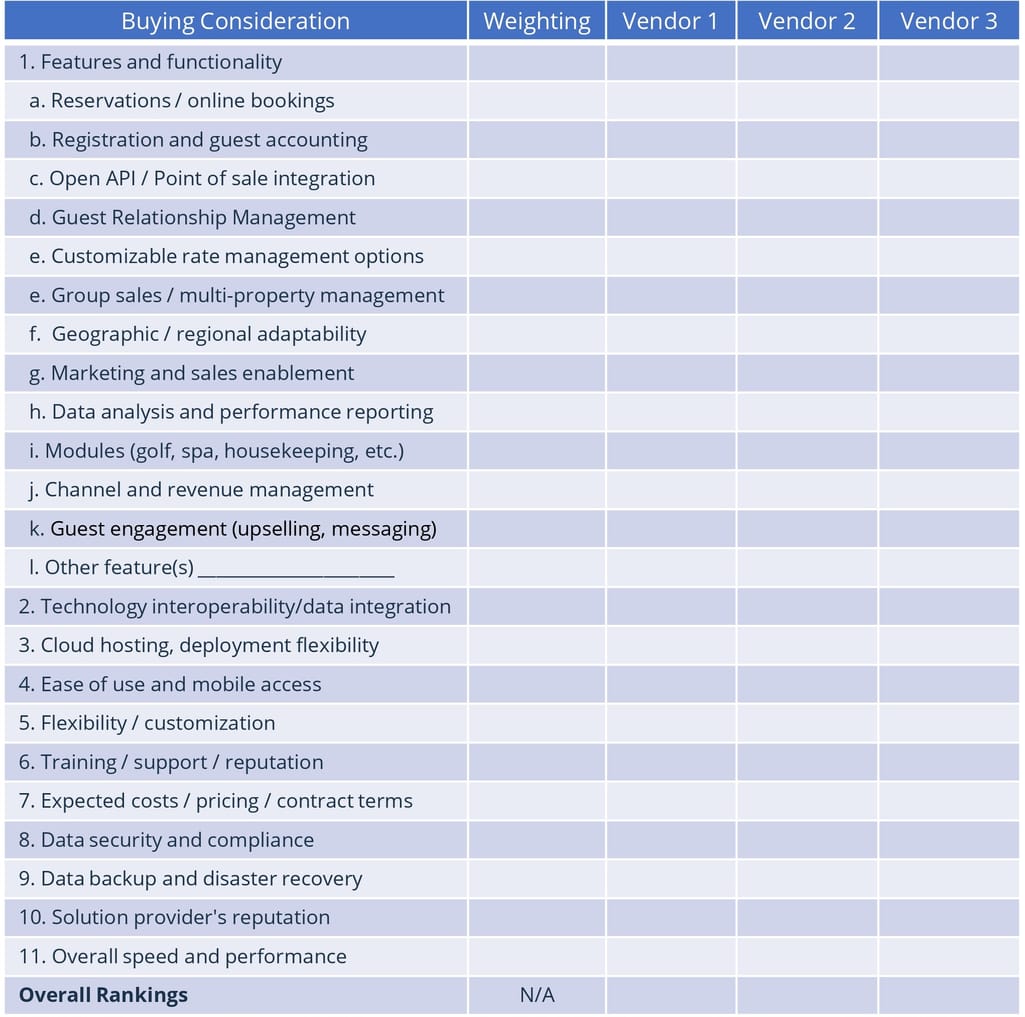
The Evaluation Checklist. Source: The 2023 Smart Decision Guide for to Hotel Property Management Systems
The final choice of a property management system for a hotel is largely shaped by the functionality required. But there are other considerations to keep in mind.
Check integration options. If there are systems already used by a hotel, or if you plan on integrating additional software, make sure that your vendor supports all necessary APIs and is ready to provide integration services. Otherwise, you may consider an external technical consultant to provide integration services.
Consider a cloud solution with mobile access. Cloud solutions are generally less expensive than on-premises software, and an owner doesn't need to pay maintenance fees. Users of cloud software pay a subscription fee depending on the number of rooms in a hotel and modules they need. Also, cloud software is better at integrating with third-party systems like OTAs and GDSs.
On top of that, cloud-based systems can be constantly and seamlessly updated, and usually have a mobile version. Mobile access facilitates communication across departments (front-office, management, housekeeping, etc.) which helps improve customer service.
Mobile interface of a hotel PMS. Source: eZee Absolute
Pay attention to the degree of customization offered by a provider. Depending on the size and type of a property, PMS requirements may differ. For instance, if you need a bed-based management system instead of room-based in the front-office module, make sure that the PMS vendor can provide this sort of customization.
Prioritize ease of use. The system’s UX will impact your employees’ learning curve. The more complex and unintuitive the interface, the more time you have to invest in staff training and transitioning. Also, ask the vendor what kind of training they provide and if it’s included in the cost.
Assess customer support. Anything can happen to software, but it must not affect the hotel service. Hoteliers need 24/7 access to technical support. When choosing a PMS, look for customer support reviews from fellow hoteliers or negotiate all support terms with your vendor in detail to ensure that any software outages won’t have a dramatic impact on your operations.
Calculate ROI and spending. Whether you want to update an existing property management system, build a custom one, or buy an off-the-shelf solution, decide how much you’re ready to spend on it. To make sure that the PMS will pay off, consider these key factors:
-
time currently spent and how it will be reduced as a result of automation;
-
how distribution and revenue will change; and
-
cost of system implementation, integration, and ongoing maintenance.
Oracle also suggests, when choosing a PMS, paying attention to security and data protection measures as well as the provider’s track record.
We’ve explored some of the popular PMS products across different categories. Since we can’t describe all systems in detail in this post, we’ve condensed essential info about most of them in comparison tables to give you an idea of what to expect. Please note that tables don’t include core PMS functionality — reservations (CRS + booking engine), channel management, housekeeping, and front-office operations. Also, note that the categorization we offer is approximate since most platforms today are becoming increasingly universal.
Property management systems for hotel chains and resorts
Larger properties require solutions with a wide range of modules other than the basic reservation, front office, and housekeeping. Their PMS must facilitate group bookings as well as have POS-services, multi-property management capabilities, back-office management, revenue management, and sales and marketing functionality.
Vendors cater to the needs of large properties, adding special modules like golf and spa management, event management, and other specialized functionality. Also, owners of big properties should consider PMSs with capabilities that automate check-in and checkout and offer other self-service tools.
We looked at such renowned, comprehensive tools as Oracle, 5stelle*, Clock PMS, Maestro, and others. All of them are designed to streamline operations of big hotels and hotel chains but can also be tailored to fit the needs of independent properties.
Please note that most products are highly customizable and modular; so when purchasing such a solution, you can choose the components you need and pay for what you selected.
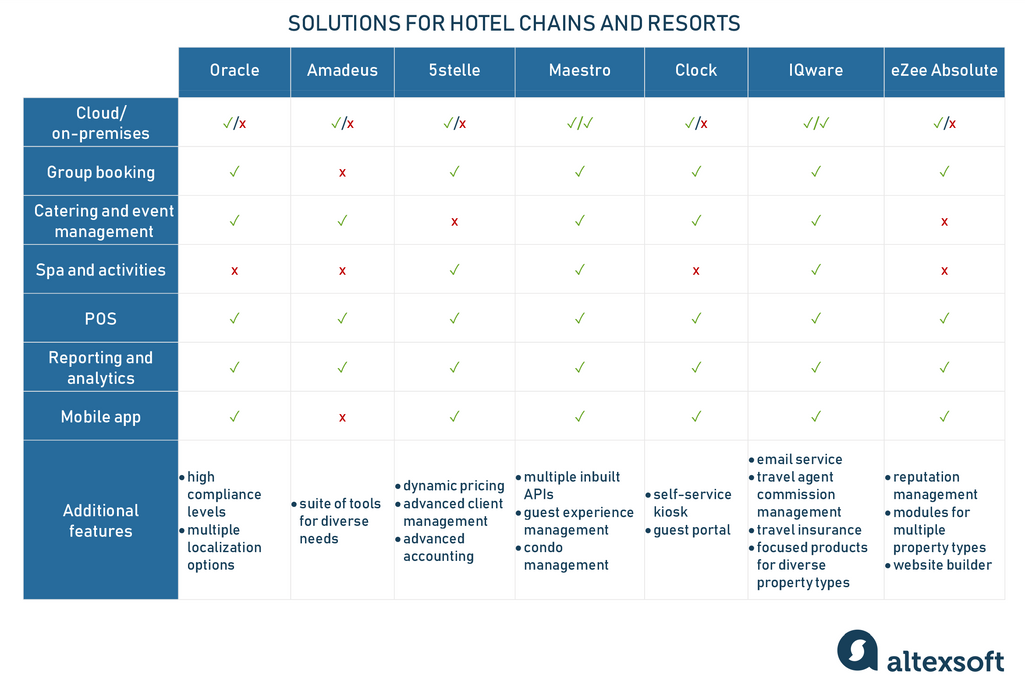
Property management systems for hotel chains and resorts
Opera PMS by Oracle
Oracle has developed a large suite of hospitality tools for various business needs. OPERA Cloud Property Management, designed to cater to multi-property hotel chains, offers comprehensive hotel management capabilities, including
-
reservation management and front office operations,
-
loyalty program management,
-
centralized guest profiles,
-
payment processing, and
-
reporting and analytics.
OPERA Cloud seamlessly integrates with other Oracle products, such as the Channel Manager, Sales and Event Management tool, or POS solutions. Oracle boasts comprehensive fiscal and legal compliance, as well as exceptional localization variety (language and currency support in more than 200 countries and territories.
If you want to integrate OPERA PMS with a third-party solution, please check out our detailed overview with practical guidelines.
Amadeus
Amadeus is another big name in the travel industry (if you don’t know why, check our GDS comparison). It provides tech solutions for airlines, airports, travel agents – and hotels. So here’s what Amadeus offers to the hospitality industry.
Amadeus PM PRO – a PMS solution designed for hotels affiliated with InterContinental Hotels Group (IHG) or Best Western International. Of course, other brands can use it as well. It includes a reservation and front-desk module, a CRM, a POS, a rate manager, and a reporting module.
iHotelier® Reservations & Booking Engine – a CRS with an in-built booking engine and a channel manager that enables distribution on 300+ OTAs, GDS systems, and metasearch sites,
Digital Media Solutions – to support all kinds of marketing campaigns.
It also has a separate Sales & Catering software powered by Delphi, Business intelligence solutions supported by TravelClick, and Service Optimization Software backed by HotSOS.
Amadeus offers tools to handle complex environments, so it works best for large properties or hotel groups needing strong distribution capabilities and extensive integration with other systems.
Maestro PMS
Maestro PMS is a multi-property management system with 20+ modules that can be integrated into one interface. The system provides open API (supporting over 800 third-party integrations) and GDS/OTA integration. The product is positioned as a guest-centered PMS for chain and independent hotels, resorts, and vacation rentals.
Maestro PMS is available both as a Windows app and a web browser application. It also has mobile apps for guests and hotel staff. Maestro’s key modules include
-
front desk operations and CRM that connects reservation, housekeeping, spa, activities, sales, and guest relations management functionality in a single environment;
-
sales and catering to keep track of all aspects of event management, conference planning, and scheduling;
-
analytics and business Intelligence for budgeting, forecasting, marketing, and reporting;
-
several spa and activities components for managing resorts, including mobile solutions for guests, allowing them to schedule services; and
-
guest experience management or GuestXMS, focused on collecting and responding to guest feedback. It offers chat options, post-check-in and post-check-out surveys, feedback analysis, and so on.
Other modules include Multi-Property Management, Housekeeping, Work Order, Guest Loyalty, Online Booking Engine, and more.
IQware PMS
Another example of a PMS for big properties is the IQpms by IQware. It is designed as a multi-property management system for properties of all sizes. Its functionality can be applied to resorts, condos, villas, vacation rentals, campgrounds, marina-resorts, and extended stays.
Like Maestro PMS, this software focuses on guest experience, offers group-booking opportunities, and provides a customizable guest app that facilitates check-ins/outs. IQpms also has the Package Management module for all-inclusive resorts or business trips.
The main functionality of this system includes the following modules.
Reservation management. Beside group management capabilities, this module offers the allotment feature that blocks the rooms for companies, airlines, tour operators, and travel agents. Also, IQpms calculates travel agent commissions automatically.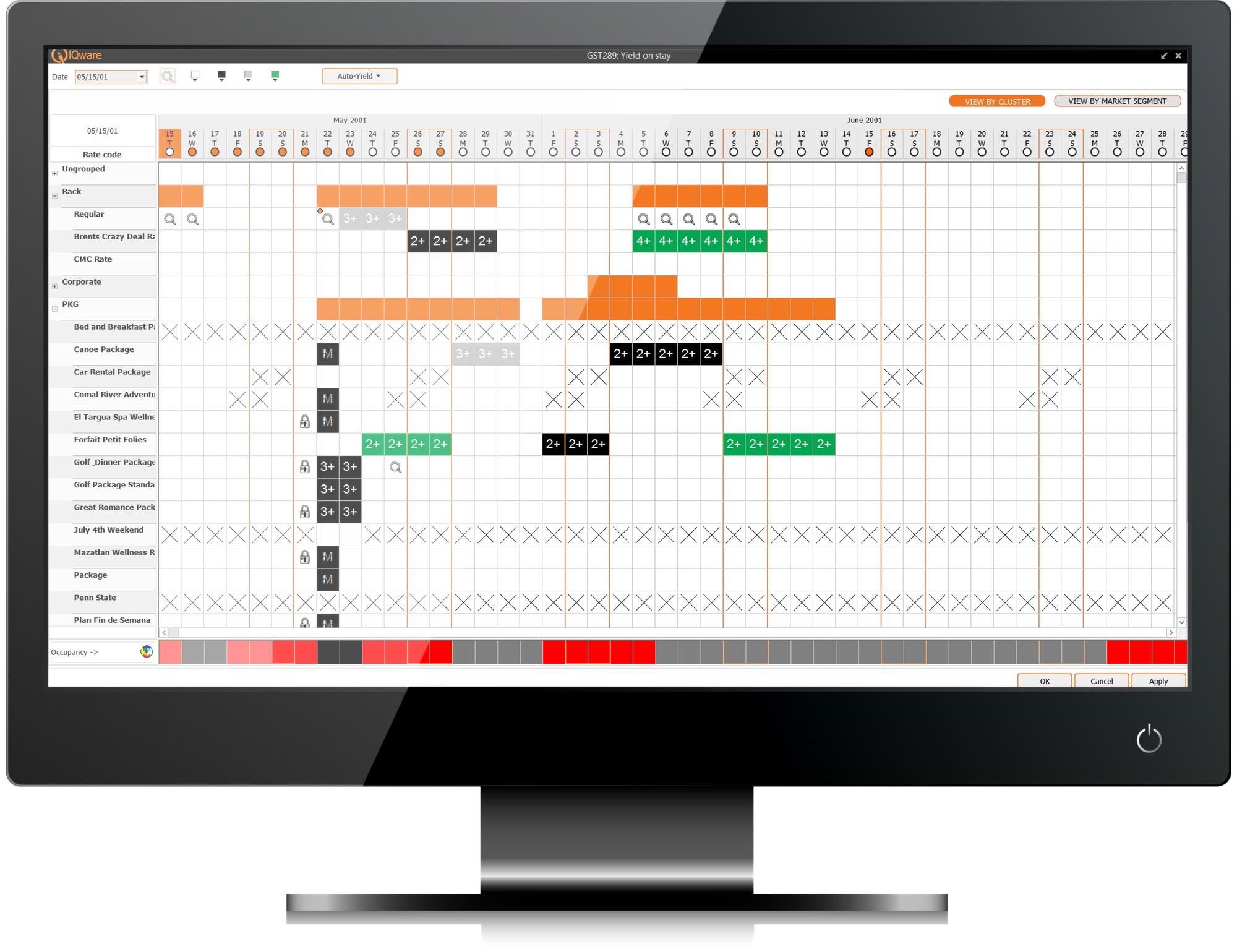
Interface of IQware PMS. Source: IQware
Channel management. Connection to multiple distribution channels is possible with the IQlink Channel Management Tool.
Revenue management. The revenue management module of IQpms has 5 levels of yield control. There’s also a rate management functionality that helps get the most yield out of occupancy levels, days, seasons, and events.
The optional modules that can expand the IQware PMS’s functionality are Activity Booking, Guest Loyalty Program, and Work Order Billing.
Additional IQware products that can be purchased separately are
- Central Reservation System,
- Email Platform,
- Spa Management,
- Point of Sale,
- Sales and Catering, and others.
Modules for other property types include Timeshare Management, Vacation Club Management, Condo-Hotel Management, and Marina Management. They expand a standard list of features with functions like activities booking or a customized maintenance management module.
eZee Absolute
eZee Absolute by eZee Technosys is another industry-recognized, cloud-based software that supports multi-property management and has different integrated pieces to process certain operations. The PMS integrates with 500+ third-party products and has its own property management app for employees and hotel managers.
Front desk and self-service. The front office module supports room allocations (automatic and manual), allows for creating customizable registration cards, helps manage housekeeping staff, and generates night audits. Plus, there’s a guest self-service portal that speeds up the check-in process and lets customers send requests directly from their smartphones and receive receipts online.
CRM and reputation management. The CRM system included in the PMS allows for sending automatic pre-arrival, in-house, and post-departure emails, and manages email marketing campaigns. Besides, eZee Technosys has introduced a sentiment analysis-based Online Reputation Management system that gathers all the guest reviews from different sources like OTAs, TripAdvisor, and other travel websites, making it more convenient to respond to them in real time.
Modules for other property types. eZee Absolute allows users to customize the system for certain types of properties such as resorts, vacation rentals, chains of properties, serviced apartments, etc. For example, the resort software offers the “Pay at Hotel” feature when an online payment link is sent to guests that they can use to make a payment of any amount.
Solutions for midsize hotels and small properties, hostels, inns, B&Bs
Such types of hotel properties usually don’t require too many additional modules, like POS services or golf management, due to their size and internal structure. The main components these PMSs should have are an online booking tool, a front-desk solution, and integration to a hotel’s existing reservation platform. Because small hotels may need slightly different functions, the PMS should offer a high level of customization.
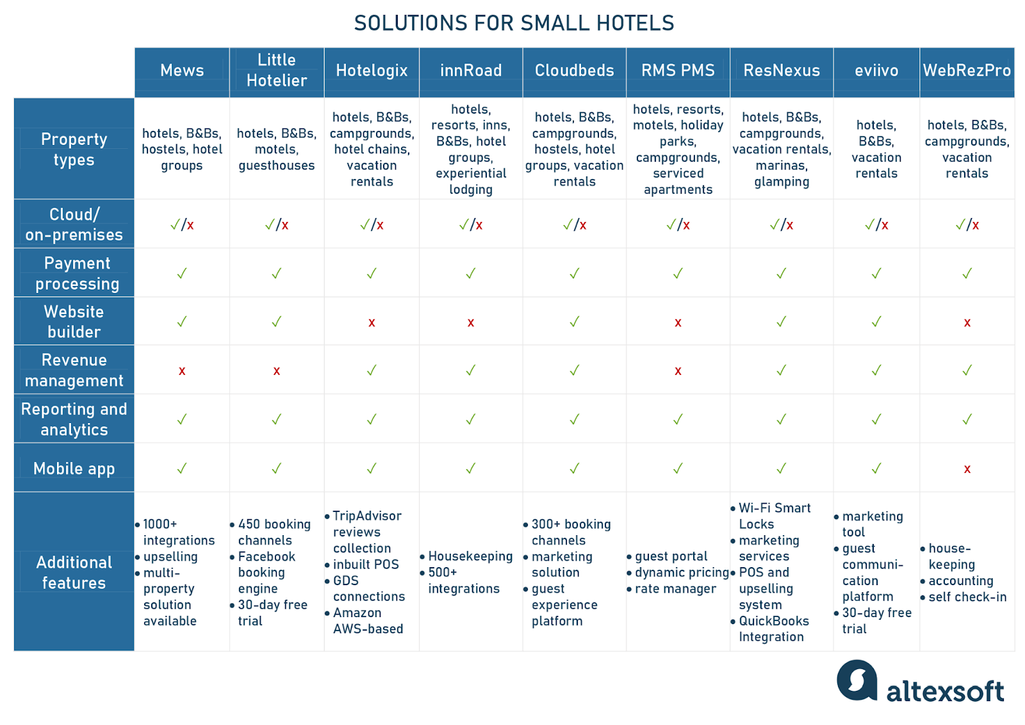
Solutions for small hotels compared
Such systems usually work well not only for small properties but also for other lodging types, including campgrounds, glamping sites, and so on.
Mews PMS
Mews PMS is a cloud-based property management solution designed for properties of different sizes. It’s flexible enough to be a good fit for small hostels – but it also has something to offer to multi-property hotels. The most basic plan includes
-
reservation management and front-desk functionality,
-
a booking engine,
-
online check-in/out functionality,
-
rate management, and
-
payments processing.
More advanced plans also include group bookings, self-service kiosks, expanded reporting, an analytics module, and so on. In addition, Mews offers a marketplace of 1,000+ hospitality integrations, supports upselling, and allows for accepting long-term reservations.
The Mews PMS doesn’t include a channel manager but hoteliers can integrate with one of the providers suggested in the marketplace.
Besides room sales, Mews allows you to sell other spaces like parking, meeting rooms, or rooftop decks.
Mews doesn’t disclose its pricing and a free trial is not available.
Little Hotelier
Little Hotelier is a cloud-based solution for small hotel properties like B&Bs, hostels, and guesthouses. It also has separate offerings for lodges and apartment management.
The PMS is powered by SiteMinder and integrates with this reservation platform. However, it also allows third-party integrations. Little Hotelier combines all necessary modules for a hotel in one PMS:
-
front desk management,
-
reservation management,
-
channel manager with online booking engine,
-
payment processing, and
-
reporting and insights.
Also, Little Hotelier is available in a fully functional mobile version and has a website builder.
The channel manager of Little Hotelier distributes properties to more than 450 booking channels including connection to Airbnb and provides a channel analysis report. The reporting module has convenient dashboards to monitor a hotel’s performance and financials.
Little Hotelier offers a 30 day free trial if you want to test it before subscribing.
Hotelogix
Another PMS for small properties is Hotelogix. It’s also suitable for hotels, serviced apartments, and resorts. It has a strong channel management module with GDS connections, offers third-party integrations with diverse reservation platforms, and enables customization. For example, if you run a hostel, you can select a bed-based reservation management system instead of a room-based one.
Hotelogix PMS offers a Facebook online engine and mobile access from the app for the convenience of a hotel`s team. One more interesting feature of Hotelogix is online reputation management, created in cooperation with TripAdvisor. This tool allows for automating guest feedback collection, so that managers can see the reviews and reply faster.
To test the system, you can sign up for a 15 day free trial.
Cloudbeds
Cloudbeds offers a cloud-based PMS with an integrated channel manager, booking engine, revenue management module, etc. Add-on packages include a digital marketing solution, operations management, enhanced revenue management functionality, and a guest experience platform.
Small to medium-sized properties appreciate the interface simplicity and that Clodbeds is an all-in-one platform. However, some have reported limited customization, occasional glitches, and poor customer support.
RMS PMS
RMS Cloud is an online all-in-one property management solution for hotels and resorts, as well as motels, holiday parks, campgrounds, and serviced apartments. It has an in-built channel manager, a booking engine, and a financial tools ecosystem for streamlined billing, invoicing, and reporting.
It also offers a guest portal that enables self-check-in, payments, and reservation adjustments, a housekeeping module, a POS system, and customizable business intelligence dashboards. The rate manager tool enables dynamic pricing and allows for accommodating long-term bookings.
RMS reviews highlight the ease of use and comprehensive functionality though some mention performance issues and lack of available integrations.
Systems for vacation rentals, apartments, guest houses, and lodging management
In our blog, we have a number of materials dedicated to managing vacation rentals (e.g., focused channel managers or specifics of alternative accommodation distribution). We’ve also discussed vacation rental PMSs so you can consult that post for a detailed overview.
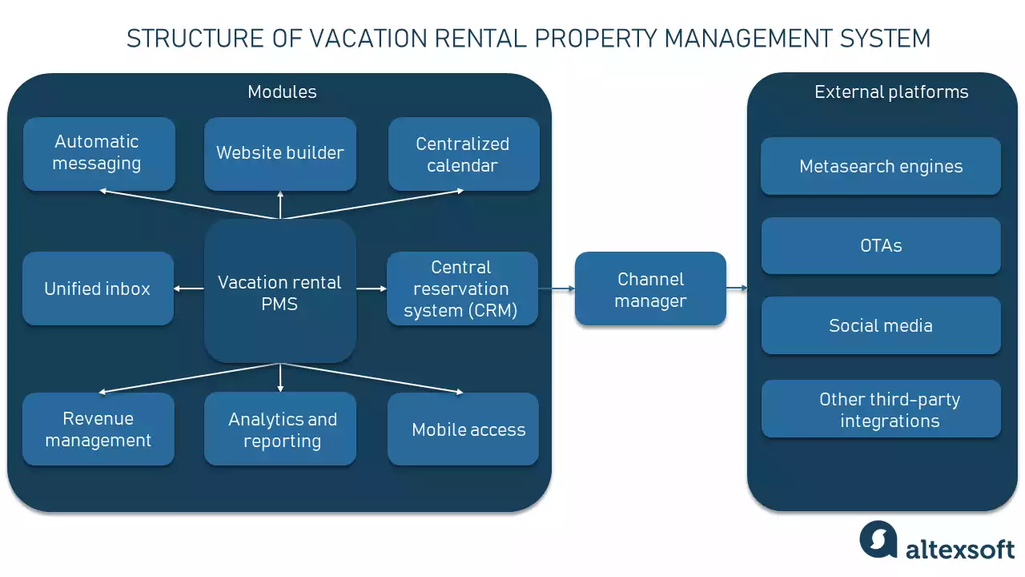
Structure of a vacation rental property management system
In a nutshell, the structure of a vacation rental PMS is similar to that of a hotel but has a bigger focus on distribution management, communication, online presence, and mobile access. Also, in most cases, it must be a multi-property management solution.
Some of the PMSs we discussed above provide vacation rental customizations. However, the hospitality technology market offers specialized products designed for alternative accommodation types. Typically, they have a user-friendly interface for easy, intuitive operation on the go through a mobile app. Let’s look at some of them.
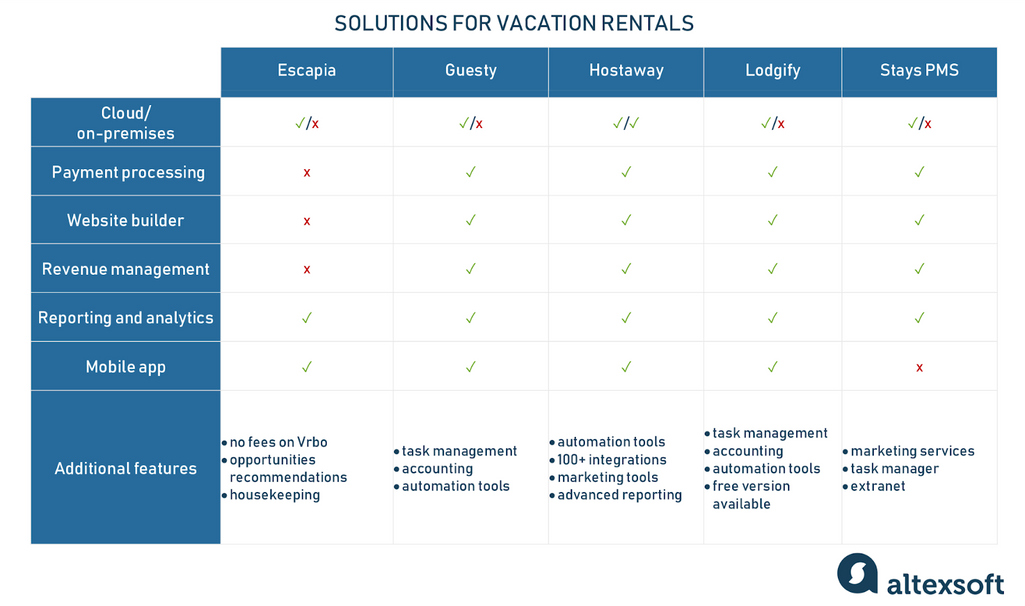
Solutions for vacation rentals compared
Hostaway
Hostaway is an award-winning vacation rental PMS that automates all the daily operations including reservations, marketing, reporting, distribution management, and much more.
Hostaway offers a number of focused automation tools to streamline repetitive tasks related to payments, messaging, or reviews. There are also website building, payment processing, and other handy features included.
It comes pre-integrated with 100+ distribution channels and over 3,000 more integrations are available through Zapier. Users also reported great customer support.
Stays PMS
Stays PMS is a Brazilian product that features a channel management system with connection to more than 300 distribution channels, including Airbnb, Booking.com, Expedia, and HomeAway.
Stays PMS has a website management tool that integrates with Facebook and allows for content management. It also has a guest reviews tool, commission management, sales and marketing, and a payment processing tool. Depending on the number of accommodations (from 10 to 1000+), a customer can choose a suitable subscription plan.
What’s the future of hotel PMS?
Technologies in the hospitality industry are constantly developing, offering new functions and modules to optimize daily operations – and meet the newly emerging requirements related to global digitization. So what’s going on with them now?
API-first approach. As we already see, property management systems are switching towards cloud and open API platforms, which leads to a better connection between different modules and thereby sufficiently improves the speed and quality of data exchange.
AI-powered solutions. The hospitality industry actively adopts AI and Data Science to enhance performance and customer experience. Hotel property management systems become more AI-powered, especially in the fields of business intelligence, revenue management, and guest service (chatbots and e-concierges).
Internet of Things. We’ve already mentioned the increasing adoption of smart technologies (like in-room controls, facial recognition, etc.). Most of them are based on IoT connections and involve implementation of sensors and other smart devices, all of which must be connected to the main hotel’s operational center – the PMS.
